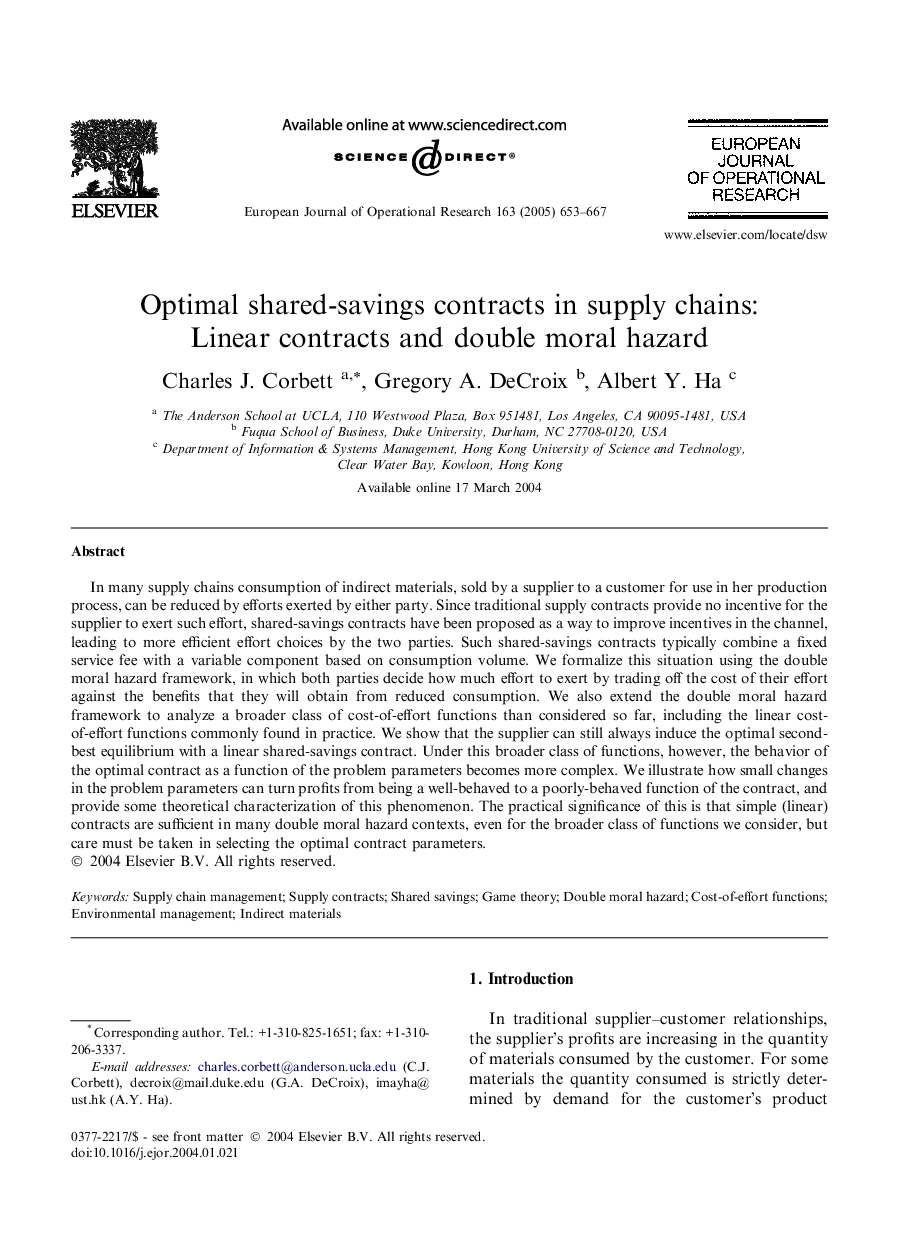| Article ID | Journal | Published Year | Pages | File Type |
|---|---|---|---|---|
| 9663860 | European Journal of Operational Research | 2005 | 15 Pages |
Abstract
In many supply chains consumption of indirect materials, sold by a supplier to a customer for use in her production process, can be reduced by efforts exerted by either party. Since traditional supply contracts provide no incentive for the supplier to exert such effort, shared-savings contracts have been proposed as a way to improve incentives in the channel, leading to more efficient effort choices by the two parties. Such shared-savings contracts typically combine a fixed service fee with a variable component based on consumption volume. We formalize this situation using the double moral hazard framework, in which both parties decide how much effort to exert by trading off the cost of their effort against the benefits that they will obtain from reduced consumption. We also extend the double moral hazard framework to analyze a broader class of cost-of-effort functions than considered so far, including the linear cost-of-effort functions commonly found in practice. We show that the supplier can still always induce the optimal second-best equilibrium with a linear shared-savings contract. Under this broader class of functions, however, the behavior of the optimal contract as a function of the problem parameters becomes more complex. We illustrate how small changes in the problem parameters can turn profits from being a well-behaved to a poorly-behaved function of the contract, and provide some theoretical characterization of this phenomenon. The practical significance of this is that simple (linear) contracts are sufficient in many double moral hazard contexts, even for the broader class of functions we consider, but care must be taken in selecting the optimal contract parameters.
Keywords
Related Topics
Physical Sciences and Engineering
Computer Science
Computer Science (General)
Authors
Charles J. Corbett, Gregory A. DeCroix, Albert Y. Ha,
